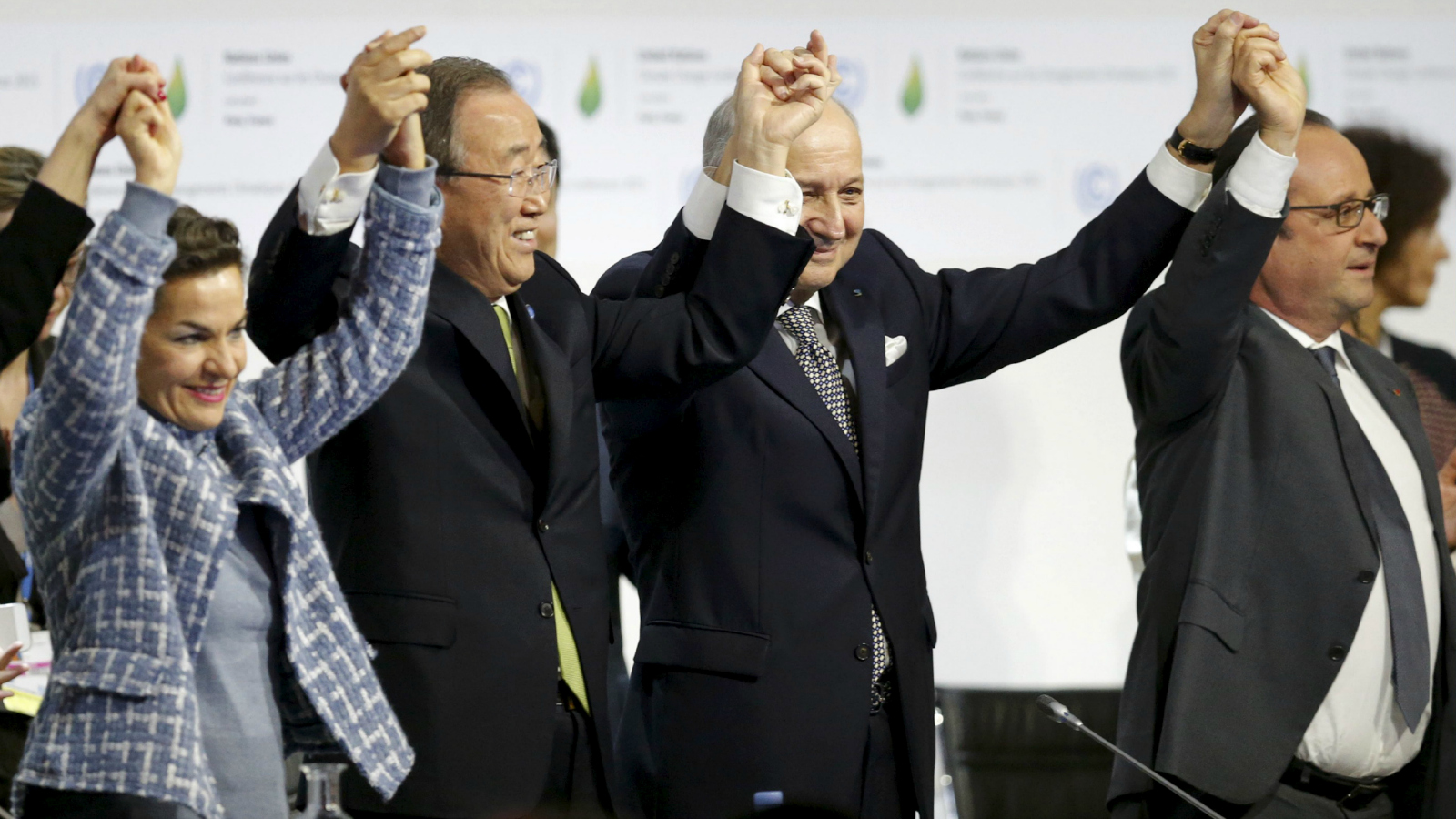France on Wednesday became the first global power to formally join the U.N. climate deal, after it was negotiated in Paris late last year.
While 177 parties have signed the deal at the U.N. headquarters in New York so far, only 17 have gone all the way by ratifying the text in their home countries. To kick the agreement into action, 55 parties accounting for at least 55 percent of global emissions will need to ratify it.
There’s a catch with the French ratification, too: It won’t count for anything if the rest of Europe doesn’t do the same. The 28-member European Union negotiated and adopted the Paris Agreement as a bloc, and therefore must ratify it as such.
As you might expect, that’s a little complicated. Citing the need to finalize implementation details, Germany and the United Kingdom currently oppose swift ratification.
Other industrialized countries like the United States and China — which account for a greater percentage share of global emissions — have said they intend to ratify the deal by year’s end. Even without Europe’s participation, India could theoretically push the world over the 55-percent mark by the end of the year if it, too, chooses to seal the deal.
France will continue to put pressure on the rest of the Europe, undeterred by the usual slow grind of E.U. politics. As French President François Hollande said: “Signing is good, ratifying is better.”
Bon mots, François.



